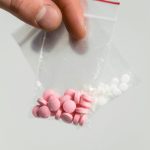Attention Deficit Hyperactivity Disorder (ADHD) presents a formidable challenge for children and their caregivers. Often, the first line of defense involves pharmacological treatments. However, many parents and professionals seek non-medication strategies. This article explores the most effective non-medication approaches for UK pediatricians managing ADHD in children. We will delve into various aspects such as behavioral interventions, training programs, and support systems, offering a comprehensive overview backed by academic references and practical recommendations.
Understanding ADHD: Symptoms and Diagnosis
Before diving into non-medication treatments, understanding ADHD’s core symptoms and diagnostic criteria is crucial. ADHD primarily manifests as attention deficits, hyperactivity, and impulsiveness. These symptoms can vary significantly among children, making diagnosis complex yet essential. According to numerous mental health resources, early diagnosis can significantly improve management outcomes.
Also read : How can UK audiologists improve hearing aid technology for better user experience?
ADHD diagnosis follows guidelines from authoritative bodies like the National Institute for Health and Care Excellence (NICE) in the UK. Pediatricians often rely on detailed scholar consultations, behavioral assessments, and input from parents and teachers. The primary goal of diagnosing ADHD is to tailor a treatment plan that best suits the individual child’s needs.
Behavioral Interventions: A Primary Treatment Modality
Behavioral interventions are a cornerstone in managing ADHD without medication. These strategies focus on altering behavior patterns through reinforcement techniques and structured environments. Pediatricians often recommend behavioral therapy in conjunction with other non-medication treatments.
Additional reading : How can UK oncologists employ precision medicine for targeted cancer therapy?
Parent Training Programs
One effective method is parent training programs. These initiatives educate parents on managing ADHD symptoms by establishing clear rules, consistent routines, and reward systems. Programs like the “Incredible Years” and “Triple P” (Positive Parenting Program) provide structured guidance. Training parents creates a more supportive home environment, enhancing the child’s ability to manage ADHD symptoms.
Classroom Management Techniques
Effective ADHD management extends to the classroom. Pediatricians often collaborate with educators to implement strategies that support learning and behavior. Techniques such as seating arrangements, regular breaks, and personalized instructions can be highly beneficial. Some schools employ specialized programs that provide additional support for children with ADHD, ensuring they receive the attention they need to succeed academically.
Cognitive Behavioral Therapy (CBT)
CBT is another powerful tool in the arsenal against ADHD. This psychotherapy helps children develop coping skills and strategies to manage their symptoms. Through regular sessions with trained therapists, children learn to recognize negative thought patterns and replace them with positive behaviors. CBT has shown significant success in improving attention and reducing hyperactivity.
Diet and Exercise: Natural Aids for ADHD Management
The impact of diet and physical activity on ADHD symptoms is a growing area of interest. While diet alone cannot cure ADHD, certain nutritional changes and regular exercise can play a supportive role in managing symptoms.
Dietary Adjustments
Research indicates that certain dietary adjustments can help manage ADHD symptoms. Pediatricians often recommend a diet rich in fruits, vegetables, and whole grains while reducing sugar and artificial additives. Omega-3 fatty acids, found in fish oil, have also been shown to improve cognitive function and reduce hyperactivity. Consulting a nutritionist can be beneficial in creating a balanced diet plan tailored to the child’s needs.
Physical Activity
Regular physical activity is beneficial for children with ADHD. Exercise helps reduce hyperactivity, improve focus, and enhance overall mental health. Activities like swimming, cycling, and team sports are particularly effective. Pediatricians should encourage parents to incorporate regular exercise into their child’s routine, making it a fun and integral part of their daily life.
Psychoeducation: Empowering Families and Educators
Psychoeducation involves educating families and educators about ADHD, its symptoms, and effective management strategies. This knowledge empowers them to create supportive environments, reducing the stigma often associated with the disorder.
Workshops and Support Groups
Workshops and support groups provide platforms for sharing experiences and learning from professionals. These settings foster a sense of community, helping families and educators feel less isolated. Through these interactions, they gain practical insights and emotional support, enhancing their ability to manage ADHD effectively.
Individualized Education Plans (IEPs)
For children with ADHD, an Individualized Education Plan (IEP) can be a valuable tool. IEPs are customized plans developed in collaboration with educators, parents, and pediatricians. They outline specific goals, accommodations, and strategies tailored to the child’s unique needs. Regular reviews and updates ensure that the plan remains relevant as the child progresses.
Technology-Based Interventions: A Modern Approach
In recent years, technology-based interventions have emerged as promising tools in ADHD management. These approaches leverage digital platforms and applications to provide interactive and engaging solutions for children with ADHD.
Neurofeedback
Neurofeedback is a technique that uses real-time feedback to train children to regulate their brain activity. Through sensors attached to the scalp, children receive immediate feedback on their brainwave patterns. This training helps them develop self-regulation skills, improving attention and reducing hyperactivity. Neurofeedback is non-invasive and has shown positive results in several studies.
Mobile Applications
Various mobile applications designed for ADHD management offer engaging activities that enhance cognitive skills. These apps provide exercises targeting attention, memory, and impulse control. Pediatricians can recommend reputable apps that complement other non-medication treatments, making therapy more accessible and enjoyable for children.
Online Therapy Platforms
Online therapy platforms offer convenient access to professional counseling and support. These platforms connect children and families with licensed therapists, providing sessions from the comfort of their homes. Online therapy is particularly beneficial for families in remote areas or those with limited access to in-person services.
In conclusion, managing ADHD in children requires a holistic approach that combines various non-medication strategies. Behavioral interventions, diet and exercise modifications, psychoeducation, and technology-based solutions all play vital roles in supporting children with ADHD. Pediatricians in the UK must adopt these best practices to create comprehensive and individualized treatment plans.
By empowering parents, educators, and children with knowledge and practical tools, we can enhance the quality of life for those affected by ADHD. While medication remains a valuable option, non-medication approaches offer sustainable and long-term solutions that address the root causes of ADHD symptoms. As we continue to explore innovative treatments, the collaboration between healthcare professionals, families, and educators will be crucial in ensuring the well-being of children with ADHD.
The key takeaway is to remember that every child is unique, and a one-size-fits-all approach does not work for ADHD. By embracing a multifaceted strategy, we can provide children with the support they need to thrive academically, socially, and emotionally.












